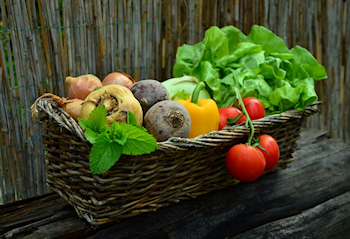Everyone wants to eat healthier and maintain healthy lifestyles. Because of this trend, anything that is peddled as safer than the conventional alternative receives a lot of warmth, especially with food. This is the loophole that many advertisers have exploited in pushing organic and non-GMO foods to the populace.
Are organic and non-GMO foods actually better for people?
Even though they are much more expensive than their conventional alternatives, shoppers at every grocery store prefer them. But are organic and non-GMO foods really safer? This article debunks some popular myths about organic and non-GMO foods and explains how safe they really are.
Organic and non-GMO foods also contain pesticides
One of the selling points of organic and non-GMO foods is the fact that artificial pesticides are not used on them for at least three years to the time they were harvested, according to FDA's strict regulations. However, natural pesticides and materials such as pheromones are applied to organic and non-GMO foods.
Also, despite the fact that pesticides are applied to conventional foods, a negligible amount of the pesticides are usually present in the final consumer product. So, conventional foods are as good as organic and non-GMO foods in terms of threat from pesticides applied.
Organic and non-GMO foods are not exactly healthier
There is the general perception that organic and non-GMO foods are healthier than their conventional counterparts, and this might not actually be the case. In spite of this general perception, research has not proven that organic and non-GMO foods are nutritionally superior to the conventional alternatives, at least not as much as they are hyped. Although studies have proven that organic and non-GMO meat has more omega-3 fatty acid than its conventional alternative, that finding is one of very few. Hence, it is safe to assume from research that organic and non-GMO foods are not as healthy as they are they are advertised to be.
Non-GMO and organic foods may contain non-organic constituents
Although the requirement for organic and non-GMO foods states that 95% of them must be made up of organic components, these foods also contain inorganic components which could not be entirely healthy. Organic and non-GMO foods are most likely not fully organic because the demand for organic ingredients outweighs the current availability. Also, the requirements of non-GMO and organic foods are not as clear as assumed, and the GMO component of non-GMO and organic foods could not be labeled.
With the lack of enough ingredients to meet the needs of the non-GMO and organic food industry, there is a tendency for more organic and non-GMO foods to contain more GMO components.
Ultimately, organic and non-GMO foods are not as safer and healthier than their conventional counterparts as they are peddled to be. Nutritionists have even suggested that a healthy diet whether organic or not is all one needs to stay in the best form.







